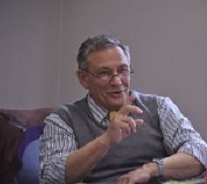EU – Baltic States, Modern EU, Society
International Internet Magazine. Baltic States news & analytics
Thursday, 18.04.2024, 14:57
Integration and European values: challenges abound
 Print version
Print version |
|---|
On 7 June 2016, the Commission adopted an Integration Action Plan of Third-Country Nationals outlining a set of actions ranging from education, employment and
access to services to non-discrimination and social inclusion. The Commission
puts a particular emphasis on promoting inclusive education and European common
values as well as reaching out to young people.
The Commission has taken a number of steps to implement the Paris
Declaration on promoting citizenship and the common values of freedom,
tolerance and non-discrimination through education, adopted on 17 March 2015.
In 2016, the Erasmus+ programme made more than €400 million available to
transnational partnerships to develop innovative policy approaches and practices
at grass-roots level. Under the Europe for Citizens Programme 2014-20, the
Commission co-finances projects raising awareness of EU values, notably
tolerance, mutual respect and promoting civil society engagement.
The Rights, Equality and Citizenship Programme 2014-20 supports projects
focusing on preventing and combatting racist and xenophobic hatred and
intolerance, as well as projects promoting the development of tools and
practices to prevent, monitor and combat online hate speech, including through
the development of positive counter-narratives.
Migration,
integration and European values
The discussions ranged from the challenges posed by populism and
intolerance to the vital role of education and grassroots outreach in improving
integration and social cohesion in Europe. The leaders agreed to work closely
with the Commission to ensure European values are embraced in the context of
migration and integration.
The Commission (on behalf of its first Vice-President Frans Timmermans) hosted
at the end of November the 12th annual high-level meeting with
religious leaders from across Europe to discuss "Migration, integration
and European values".
First Vice-President Frans Timmermans
said that religious leaders play a
pivotal role to spur the integration and participation of all their members in
Europe as “full Europeans”, no matter the place of their cradle, no matter
their creed. Through these dialogues, the Commission identifies the common
fundamental values that are binding the EU citizens, he added.
Commissioner for Migration, Home Affairs and Citizenship Dimitris Avramopoulos, who also participated in
the event, said that reaching out to
all communities, including the different religious ones, was essential for
creating and maintaining a cohesive and inclusive society for all. “With the
rise of nationalism, xenophobia and extremism, he argued, we must ensure that
our society remains welcoming – especially to those fleeing from war and in
need of international protection – while preserving its core values and
principles”.
The meeting took place within the framework of the ongoing dialogue with
churches, religious, philosophical and non-confessional organisations as
enshrined in the Lisbon Treaty (Art 17 TFEU) and followed an annual meeting
with philosophical and non-confessional organisations, which took place on 30
June 2016.
Among the meeting’s participants were the
following spiritual leaders: Metropolitan of Belgium (Exarch
of the Netherlands and Luxemburg); Bishop of Bavaria and Chairman of the
Council of the Evangelical Church of Germany (EKD); Imam of Drancy (France) and
former President of the Conference of Imams of France; Chief Rabbi of the
Jewish Community in Vienna; Chief Rabbi of Brussels and Permanent
Representative to the EU Conference of European Rabbis; Director of the Islamic
Community in Penzberg; representative of the Anglican Bishop in Europe; Archbishop
of the Church of Sweden; President of the Europe Area of the Church of Jesus
Christ of Latter-day Saints; Auxiliary Bishop of the Archdiocese of
Malines-Brussels and First Vice-President of COMECE; President of the Nordic
Bishops' Conference; President of the "Comunità religiosa Islamica"
in Italy; Metropolitan and Patriarchal Vicar of the Netherlands, Syriac
Orthodox Church of Antioch; Archbishop of Prešov and Primate of the Czech and
Slovak Orthodox Church; and the President of the Hindu Forum of Europe.
More on the issue:
- http://europa.eu/rapid/press-release_IP-16-4002_en.htm, Brussels, 29 november 2016.








 «The Baltic Course» Is Sold and Stays in Business!
«The Baltic Course» Is Sold and Stays in Business!

